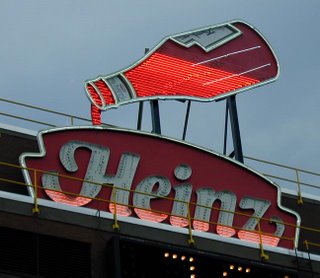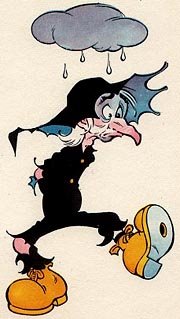 Lots of us can remember the old commercial, in which a kid is holding a ketchup bottle up at an angle – the old, glass kind, not a plastic squeeze-bottle – waiting for the contents to flow slowly onto his burger, as the pop song “Anticipation” plays in the background. That song’s going through my head today, as I think ahead to my next chemotherapy treatment coming up tomorrow.
Lots of us can remember the old commercial, in which a kid is holding a ketchup bottle up at an angle – the old, glass kind, not a plastic squeeze-bottle – waiting for the contents to flow slowly onto his burger, as the pop song “Anticipation” plays in the background. That song’s going through my head today, as I think ahead to my next chemotherapy treatment coming up tomorrow.In the commercial, anticipation is a good thing – at least, if you like ketchup (and I do). My anticipation of chemo treatment number five, by contrast, is hardly a pleasant thought.
I’ve heard how, for some cancer patients, just thinking about chemotherapy treatments can be accompanied by a visceral, physical reaction. I remember reading about a woman who ran into one of her oncology nurses in the supermarket, months after her treatments had ended, and immediately felt nauseous at the mere sight of her – a Pavlovian response. Now that my next treatment’s drawing closer, I can imagine a similar queasiness: and I don’t even need a visual cue. All I have to do is think about it.
 There’s no good reason for me to dwell on it in this way, of course – but I do. I know it’s only borrowing trouble, but I do it anyway. Today’s a perfectly good day, a beautiful day, but for some perverse reason I feel compelled to live a day ahead, when life will not be so good. If I could only bring myself back down to live in today, things would be so much better.
There’s no good reason for me to dwell on it in this way, of course – but I do. I know it’s only borrowing trouble, but I do it anyway. Today’s a perfectly good day, a beautiful day, but for some perverse reason I feel compelled to live a day ahead, when life will not be so good. If I could only bring myself back down to live in today, things would be so much better.“The present,” said the philosopher Alfred North Whitehead, “is holy ground.” So why do I flee holy ground, for someplace less pristine? Another writer, Dan Wakefield, puts it slightly differently. Trying to peer into the future, he says, is “like picking God’s pocket.” That presupposes, of course, that God is the most generous of givers: that all that we have and are comes from God and, in the end, returns to God. Therefore, we should not worry about the future, but should rather celebrate God’s abundant gifts in the present. I believe this with my mind, but believing it with my heart is a different matter.
“For surely I know the plans I have for you, says the Lord, plans for your welfare and not for harm, to give you a future with hope” (Jeremiah 29:11).
Trusting the future means living fully in the present. Now there’s a spiritual discipline...